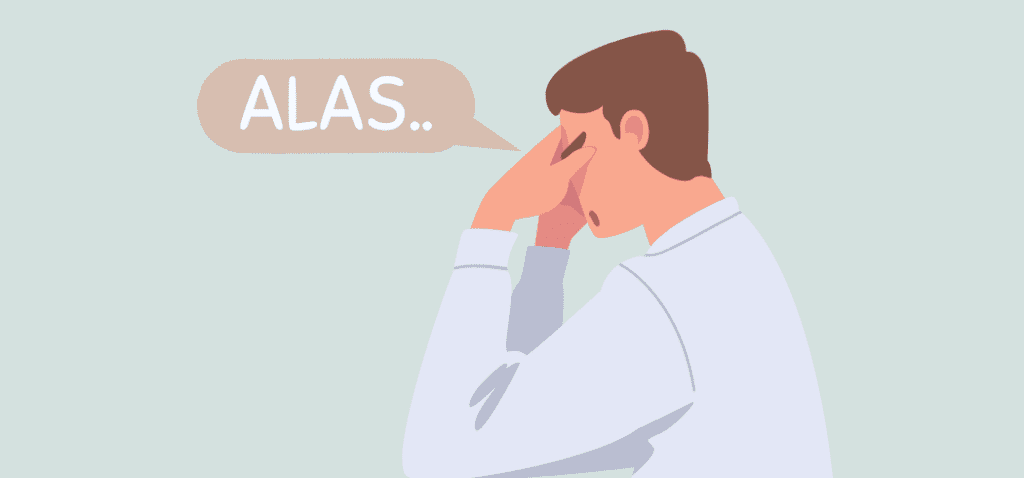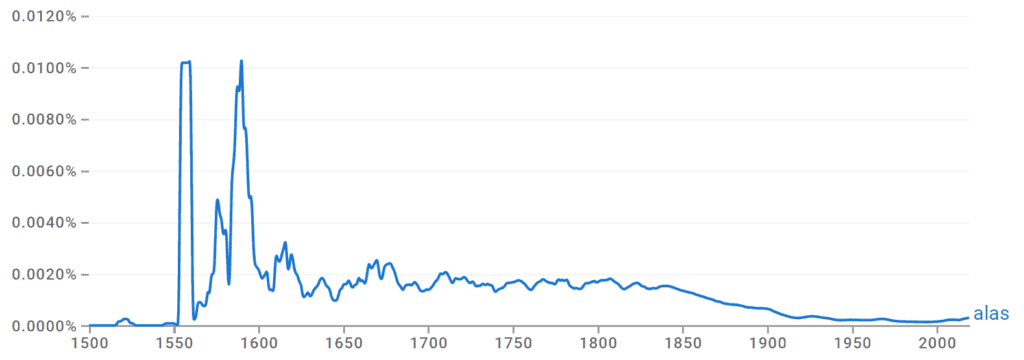Alas is a 13th-century word with a negative connotation as an interjection. In modern speech and writing, it is considered archaic, meaning it is somewhat obsolete and rarely used, but the word still pops up from time to time.
Unfortunately, many people use the word incorrectly due to its falling out of day-to-day use. Let’s learn what alas means, its origins, and how to use it properly within your material.
What Does Alas Mean?
The interjection, alas expresses grief or regret, a general unhappiness, pity, or concern resulting from something described. It’s essentially an archaic way of saying, “Oh no!” so it should always be associated with something negative.
It is difficult for modern writers to use alas without creating an ironic or pretentious tone. However, the word is not as far gone as many similar archaisms, and it still appears occasionally.
How to Use Alas Properly in a Sentence
Since alas is an interjection, it should either be followed by a comma at the start of a sentence, surrounded by commas when used in the middle of a sentence, or be used as a stand-alone.
For example:
- Alas, Tanya had to work the weekend of the girl’s retreat and couldn’t attend.
- Tanya discovered next week’s schedule and, alas, realized she would have to stay home to work.
- Alas! When her manager made the schedule, she forgot that Tanya had asked for that weekend off!
Is But Alas Grammatically Correct?
But alas suggests the coordinating conjunction combined with an interjection can be interpreted to mean finally. However, this is not the case.
Can but and alas be found next to one another? They can, but they must be separated from one another using a comma, as in but, alas.
To help illustrate this, let’s look first at an incorrect sentence:
- Incorrect: I didn’t think I would get a chance to reply to you this evening, but alas, my answer can be found in the email below.
In this sentence, but alas is not used as a negative interjection and infers an entirely new meaning altogether.
Let’s look at how to use alas properly when preceded by the conjunction but:
- Correct: After driving all day, we thought we had stopped at the perfect hotel to rest, but, alas, the hot water was out, and we had to keep driving.
In this sentence, but, alas indicates an interjection of disappointment and allows the audience to recognize that this is not an ideal situation.
Origins and Use of Alas
Alas originates from the Latin lassus, meaning “weary,” integrated into Old French during the mid-13th century as ha, las or later French hélas.
Its first use indicated weariness or tiredness but later came to be used to express something unfortunate.
Despite its long use, alas has become something of an archaic word and is rarely used in modern English vernacular despite its past popularity.
Let’s Review
Alas is an interjection first used during the 13th century. It has a negative connotation and indicates something unhappy or disappointing has happened. It can also express stronger grief or regret when used.
It is occasionally used incorrectly in modern usage to express surprise. However, to use it correctly, always relate it to a negative event or emotion.




Comments are closed.